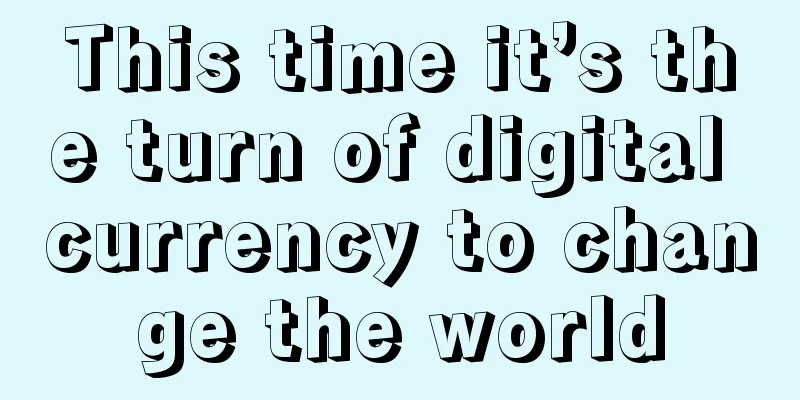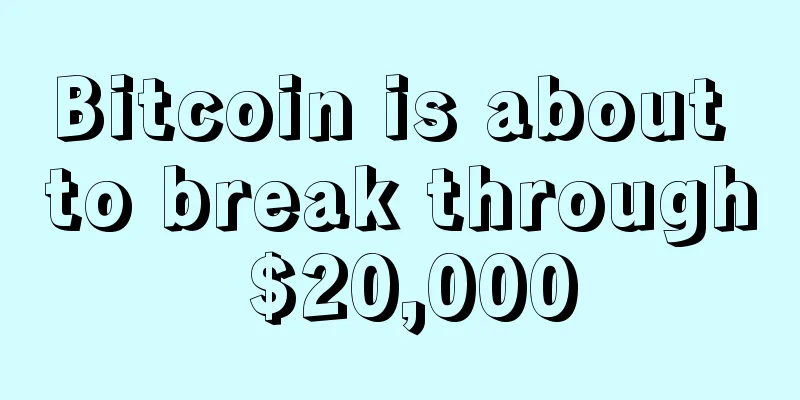In the early days of Bitcoin, it was mainly computer scientists and early adopters who were interested in it; now, a new research team consisting of scholars, entrepreneurs and economists is working hard to study online currencies and blockchain technology, and hopes to apply this technology to more fields. Whether it’s building peer-to-peer networks to secure data computation and storage, or building decentralized content management systems that allow patients to access hospital databases and medical records, blockchain and digital currencies are beginning to redefine the rules of 21st- century transactions. Brian Forde , director of the Digital Currency Initiative at the MIT Media Lab and former senior advisor to the White House’s Mobile and Data Innovation Program, is currently working on this. Brian Forde believes that, given time, blockchain and digital currencies will have a profound impact on society as a whole, just as the Internet did on the world. He believes that “the advent of the Internet has made our frequency of communication exponential, and the advent of cryptocurrencies will inevitably make our transactions exponential.” Forde is particularly concerned about the impact of digital currencies in developing countries, where many factors (such as credit certificates and lack of credit card infrastructure) prevent many people from accessing basic financial transactions. At Singularity University’s Exponential Finance conference , Forde talked about how digital currencies can enable developing countries to overcome current technical infrastructure barriers and the direction of digital currency technology development. Question: What specific applications will the digital currency proposed by MIT have? What are you most looking forward to?
Brian Forde: There are many research projects related to digital currency at MIT now . Three of the projects we often talk about are MedRec , Enigma , and academic digital certificates. MedRec is built on a private Ethereum network . It is a decentralized content management system for managing patient data, which allows patients to access their medical records. In the United States, the average American will have 16 doctors in their lifetime, which means that you may have 16 different medical records in the database . If you can, you can create a protocol to unify these records and share them with your doctor or family. Enigma is a peer-to-peer network built by MIT students using secure multi-party computation that allows parties to jointly store and run computations while keeping their data private. This allows developers to build peer-to-peer decentralized applications without the help of any third party. This is a good example of how we can share data while keeping our data private. The process of verifying a certificate (like a university degree certificate) can be a very slow, complicated, and unreliable process. A research team at the MIT Media Lab is creating a digital infrastructure for certificates called Digital Certificates to further improve this cumbersome process. This example also illustrates how to quickly complete the certification of employees' certificates or the certification process for graduate school applicants. Question: How can digital currencies help developing countries overcome the barriers of existing technological infrastructure in the next 10 years?
Brian Forde : Most developed countries have well-established credit card point-of-sale equipment and a widespread network of ATMs , but in developing countries, the infrastructure for credit and debit cards is still far from complete. Imagine two people with smartphones, but when they want to make a transaction, they have to take their bank cards out of their wallets, connect them to their phones through a dongle, and then pay a 3.5% fee for it. Isn't it ridiculous? If we can complete the transaction through an end-to-end network (we can save the dongle, do not need credit or bank cards, transaction fees are greatly reduced, and even do not need a bank account) wouldn't it be more direct and convenient? All of this can be done with smartphones, which are becoming more and more popular in developing countries. Question: You compared the potential impact of blockchain technology to that of the internet. What will happen to the global economy once this technology begins to disrupt traditional financial services and markets?
Brian Forde : Similar to the Internet (the emergence of the Internet has increased the frequency of communication between people exponentially), encrypted electronic currency will increase transactions in people's lives exponentially, because this technology will enable transactions between people to be conducted end-to-end without paying fees to third parties. Question: Is Bitcoin really the best way to digitize public financial transactions? How can Bitcoin survive its early struggles?
Brian Forde : Like any emerging technology, there are always challenges ahead for Bitcoin and other cryptocurrencies, including how to scale and how to regulate. In the early days of Bitcoin, the people working to advance Bitcoin were mainly computer scientists and celebrities. Since then, this group has expanded rapidly, with more and more people joining the ranks and developing many ways to use this technology. We need more people to advance the development of cryptocurrencies. Question: Many media have great concerns about the security and privacy of encrypted electronic currency. So what do you think we should pay attention to?
Brian Forde : If a company's website or database is hacked, we don't say the Internet is unsafe, we just say that the company running the website or database needs to improve their security. Similarly, the Bitcoin blockchain is the most secure blockchain in the world. When we hear about security threats, just like the database that was hacked, companies with cryptocurrencies need to improve their security. Bitcoin mining (which is a payment process and form of verification) makes the blockchain very secure. What we need to pay attention to is the number, diversity and computing power of independent "miners" because these "miners" are competing with each other every 10 minutes. The higher the number, diversity and computing power, the lower the probability that the total account of the Bitcoin blockchain will be compromised. | 









